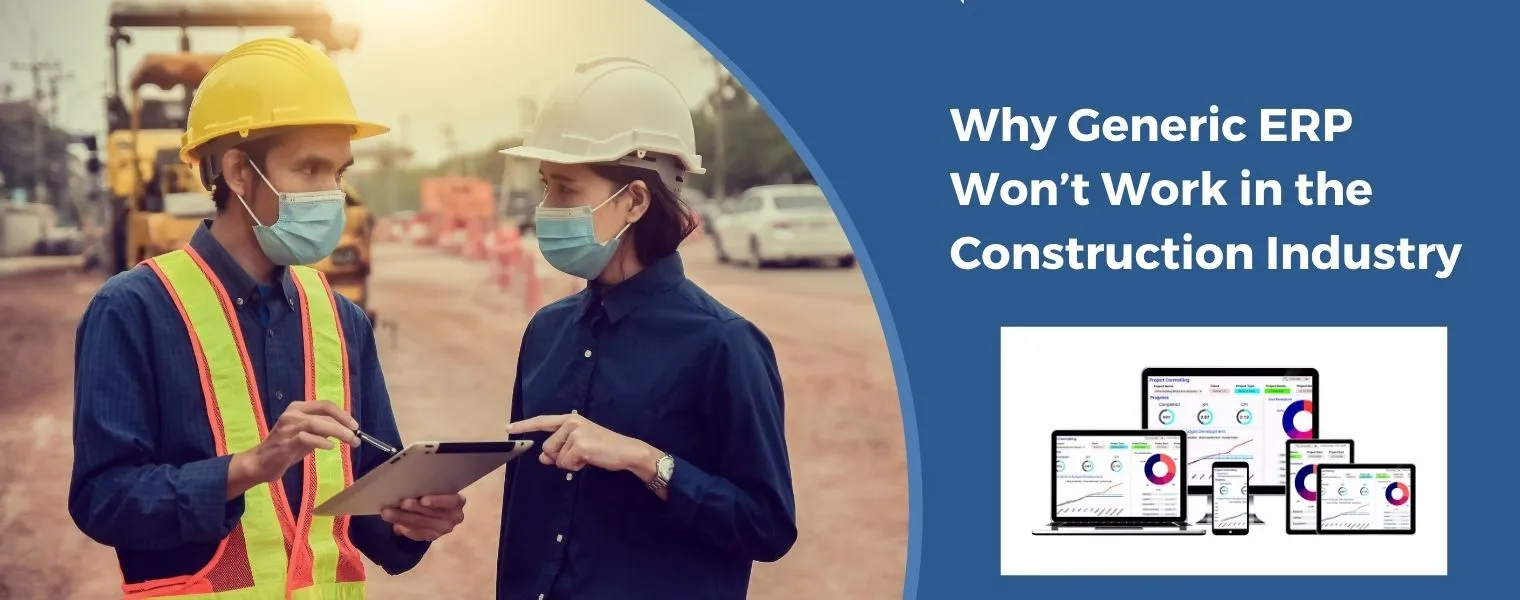
In recent years, construction companies have become increasingly complex and challenging to manage. To adapt to modern business demands, ERP systems in the construction sector have seen significant changes. Traditional ERP solutions are typically built to address general business needs, which makes them ill-suited for the unique challenges faced by the construction industry. In contrast, construction ERP software is equipped with tailored modules that specifically address the industry's requirements and offers full integration. Designed exclusively for construction, these ERP solutions are more agile and come with specialized features that delve into the practical aspects of the industry. Unfortunately, standard ERP systems do not offer these capabilities, which can lead to various issues.
When overseeing your projects, it's common for people, materials, and equipment to be moving in various directions. Contractors face the challenge of handling a vast amount of data related to their business operations to ensure construction projects are completed on schedule and within budget. To facilitate real-time connection and collaboration, it's essential for the office, field teams, engineers, project owners, subcontractors, and others to communicate effectively. Many companies turn to enterprise resource planning (ERP) software to streamline these operations. If you're using a generic ERP, you might have noticed some of the common limitations that come with software not tailored for the construction sector. When considering a software solution or a new investment, you want an ERP that boosts ROI and improves your bottom line, rather than one that leads to wasted time and unnecessary complications. This blog will delve into the challenges posed by generic ERP systems in the context of construction management.
Your company may have multiple construction projects ongoing at any time. Effectively managing them is crucial to completing them on schedule. Construction ERP software enhances business performance and increases customer satisfaction. Without project management software, it would be challenging to keep track of all project operations and ensure they progress in the right order. This could lead to difficulties in managing long schedules and achieving desired outcomes without a project tracker in a general ERP program used by builders.
Proper management of contracts and purchase orders plays a crucial role in the success of your construction business. By keeping accurate records, you not only safeguard your company against potential issues like order duplication but also improve your ability to track payments and expenses. This leads to better financial management, ensuring that projects are completed on schedule and within budget. Relying on generic ERP software in the construction sector can lead to missed opportunities, as a robust document tracking system is essential for maximizing these benefits.
Monitoring all business activities is vital, especially those occurring off-site, like at a construction location. To effectively connect with your field team, update information without the risk of errors, and quickly share important details with the relevant departments, you need Construction Software in UAE. equipped with a field reporting module. Generic ERP solutions often overlook this feature, as field reporting is only critical in certain industries, leaving them unable to provide the necessary support.
If generic ERP systems aren't paired with a billing tool, you might face payment delays, issues with material procurement, and other complications. To avoid these problems, it's essential to have a custom Construction Software in UAE. that includes a billing module. This will help automate invoice generation and expedite payments, saving you time and ensuring you never miss a billing deadline.
A CRM, or customer relationship management system, is crucial for managing client interactions, sales, and related processes. Without integrating your ERP system with a CRM, you may struggle to manage client information, communicate effectively, and keep them informed about the latest updates. This can hinder your ability to close deals or offer services. While generic ERP systems can handle various business functions, they often fall short in addressing the specific needs of the construction industry.
DoFort Construction Management Software enables companies to efficiently kickstart fresh projects, adjust to unique business needs, and streamline teams by leveraging data instead of simply gathering it. Businesses can automate, monitor, and oversee budgets, expenses, commitments, forecasts, and operational activities within and beyond the supply chain with strong controls. Get in touch with us for more information.
Welcome to DoFort !